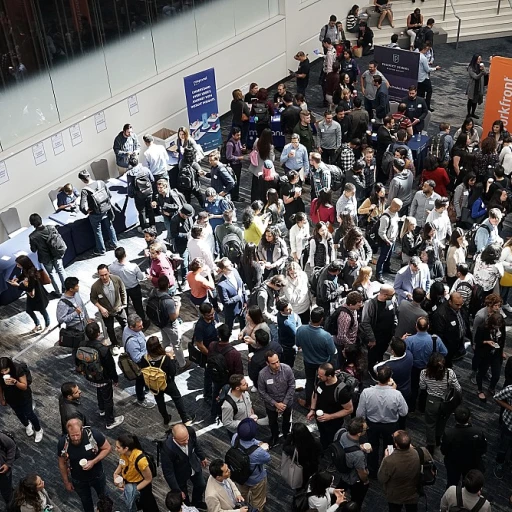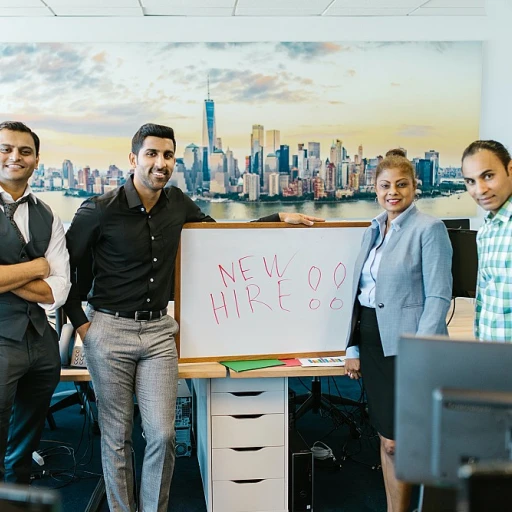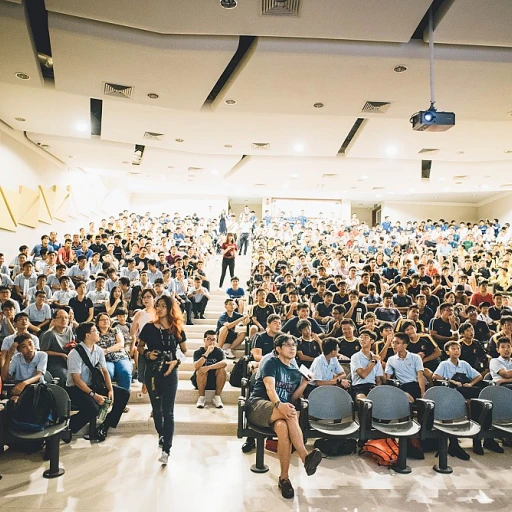Defining a Pre-Screening Job Interview
Pre-Screening Interviews: Setting the Stage for the Hiring Process
In the hiring landscape, pre-screening job interviews have become an essential component to streamline the recruitment process. These initial interviews serve as an opportunity to filter candidates, saving valuable time and resources for both the company and applicants. As companies strive to find qualified candidates who align with both the job requirements and company culture, a pre-screening interview becomes the first gateway to identify the right fit.
Conducted primarily before formal interviews, these screening interviews aim to address fundamental criteria such as candidate skills, work experience, and even salary expectations. By utilizing this step, hiring managers can swiftly gauge which candidates are suitable for progressing further in the interview process.
There’s greater flexibility in the formats these pre-screening interviews take. Whether it’s a video interview or a phone call, the goal remains the same: to efficiently assess and shortlist the best-fit candidates. Careful consideration goes into crafting the interview questions because understanding the candidate’s skills and their potential fit within the company culture is crucial at this stage.
A well-structured pre-screening process significantly contributes to the overall hiring process, ensuring that the focus is on candidates whose skills and work ethos align with the company's long-term goals. If you’re interested in learning more about preparing for this type of interview or integrating these into your HR practices, take a look at this
insightful resource.
The Importance of Pre-Screening Interviews
Evaluating the Necessity of Pre-Screening Interviews
In the evolving world of recruitment, a pre-screening interview serves as a vital checkpoint in the hiring process. Conducted before formal interviews, it helps companies filter out unqualified candidates efficiently. The importance of pre-screening interviews lies in their ability to save time and resources in identifying a good fit for the position, ensuring that only those who meet the basic criteria move forward in the hiring process.
These interviews act as a crucial introduction, presenting a snapshot of a candidate's experience, skills, and cultural fit. By understanding various pre-screening methods, organizations streamline the interview process, ultimately enhancing the recruitment workflow.
Moreover, pre-screening interviews contribute to shaping a candidate's early impression of the company, offering insight into what the job and work environment entail. This early-stage interaction also enables the company to communicate salary expectations and other role-specific details, ensuring that candidates remain interested and engaged throughout the recruitment journey.
When implemented effectively, pre-screening interviews help hiring managers identify potential cultural fits, aligning candidates with the company culture and values.
Understanding recruitment agency contract agreements is also crucial as it enables companies to leverage external expertise for efficient hiring solutions. In this way, pre-screening not only enhances the efficiency of attracting qualified candidates but also provides an opportunity to establish a strong foundation for subsequent interviews and candidate evaluations.
Common Forms and Approaches
Pre-screening interviews have evolved to accommodate different hiring needs and time constraints, often utilizing various formats and methodologies to best evaluate candidate suitability. Understanding these can refine the hiring process and highlight the most qualified candidates for further consideration.
One prevalent approach is the live telephone interview, a mainstay in the screening process. These provide a direct interaction between the hiring manager and the candidate, allowing for an initial assessment of communication skills and potential cultural fit within the company. Telephone interviews help to quickly determine whether the candidate aligns with the available position's basic requirements, such as necessary skills and relevant work experience.
Increasingly popular in recent years, video interviews offer another effective format. Utilizing software platforms, companies can conduct real-time or recorded interactions, which can be reviewed by multiple team members at different times. This method is valuable for assessing the candidate's fit with the company culture and observing their body language, which often provides insights into their interpersonal skills.
In some cases, digital assessment platforms or questionnaires can be utilized before a live interview takes place. This method allows candidates to respond to pre-selected screening questions regarding their skills, job expectations, and experience. It is a time-efficient process for both parties, allowing companies to narrow down their pool of candidates swiftly.
The choices made in structuring these pre-screening interactions greatly depend on the company's specific needs, budget, and available technology resources. For example, smaller companies might opt for simpler methods due to limited resources, whereas larger organizations might have the capacity to invest in advanced virtual assessment tools.
To ensure these formats are utilized effectively, integrating them into the overall
hiring process through a Human Resources Information System (HRIS) can streamline workflows and improve tracking of candidate evaluations. This cohesion ensures each step of the procedure is interconnected, allowing hiring managers to make informed decisions on candidates' next stages based on comprehensive data capture.
Key Questions and Topics Covered
Essential Questions and Topics Uncovered
The pre-screening job interview is an opportunity to discover whether a candidate is a good fit for the open role and your company's culture. During this stage, hiring managers and recruiters focus on a variety of key questions and topics to evaluate candidates efficiently.
- Experience and Skills: One of the primary goals is to verify the candidate's qualifications and work experience. Interviewers often ask about specific skills that relate directly to the position. They assess if the candidate possesses the necessary expertise to perform the job and contribute effectively to the company's goals.
- Understanding of the Role: Questions in this area aim to determine the candidate's understanding of what the job entails. This might include asking about how their previous experiences have prepared them for this new position and seeking examples of past work that demonstrate relevant competencies.
- Cultural Fit: Pre-screening interviews also explore how well candidates align with the company culture. This could involve discussing what kind of work environment they thrive in and their thoughts on company values and team collaboration. Screening questions here help identify if the candidate will integrate well with existing team dynamics.
- Logistics and Preferences: These interviews also cover pragmatic aspects such as salary expectations and availability. Discussing these topics early in the interview process can save time by swiftly identifying potential deal-breakers.
- Interest and Motivation: Finally, gauging a candidate's motivation for applying to the position and their enthusiasm for working with the company will help determine commitment levels. Understanding their career aspirations and how they align with the company's objectives can provide insights into future retention.
By asking these targeted questions, recruiters and hiring managers can effectively narrow down the list of qualified candidates during the pre-screening phase, ultimately streamlining the hiring process and ensuring a better candidate fit for the role and the organization.
How to Prepare for a Pre-Screening Interview
Preparing Effectively for a Pre-Screening Interview
Embarking on the journey of a pre-screening interview involves a set of well-thought-out preparations. This stage in the job interview process often serves as the candidate's first real interaction with a prospective employer, essentially setting the tone for all subsequent interactions.
- Research the Company and Role
- Understanding the company culture is essential. Familiarize yourself with the company's mission, values, and recent developments by visiting their website and recent news articles.
- Grasp a clear understanding of the job description. This will assist in aligning your skills and experiences with the position.
- Anticipate Common Interview Questions
- Pre-screening questions often aim to determine cultural fit and basic qualifications. Reflect on scenarios that demonstrate your skills and how you operate in a work environment.
- Be ready to discuss salary expectations, as this may be a point of discussion in screening interviews.
- Prepare About Your Experience and Skills
- Highlight key experiences that directly relate to the position. Prepare succinct examples illustrating how your skills make you a good fit for the role.
- Consider the Format
- If you're scheduled for a video interview, ensure your technology is set up properly. Test your camera, microphone, and internet connection ahead of time.
- Dress appropriately, as you might for an in-person meeting, to convey professionalism even in a remote setting.
- Practice Active Listening and Clear Communication
- During the pre-screening interview, listen carefully to the questions asked. Respond thoughtfully and provide specific examples where possible.
- Engaging in a clear, concise dialogue can showcase your communication skills — an attribute most employers highly value.
By taking these steps, candidates stand a better chance of making it past the screening interview stage and advancing further in the hiring process. Remember, preparation not only boosts confidence but demonstrates your sincere interest in both the company and the position at hand.
Integrating Pre-Screening Interviews with HRIS
Leveraging Technology for Efficient Integration
Incorporating pre-screening interviews into your Human Resources Information System (HRIS) can be a game changer for streamlining the hiring process. By integrating these initial assessments, you can efficiently evaluate candidates and expedite the decision-making process. Technology facilitates the seamless handling of interview data, making it easier to manage and analyze vast amounts of information.
One of the primary benefits of integrating pre-screening interviews with HRIS is improved organization and accessibility of data. This system can store details about the screening process, including candidate responses, interview notes, and scoring metrics. Such centralized storage ensures that the hiring manager can easily access relevant information during subsequent stages of the recruitment process.
Additionally, HRIS technologies can automate the scheduling of interviews, sending reminders to both candidates and hiring teams, saving time and reducing administrative overhead. Automation also helps in maintaining consistent communication during interviews, ensuring that all qualified candidates receive fair consideration.
Furthermore, the insights gained from pre-screening interviews can be automatically aligned with other HR metrics to identify trends and refine the hiring process over time. This approach helps in assessing the cultural fit of a candidate within the company, understanding salary expectations, and evaluating job-specific skills.
Companies seeking to optimize their interview process must prioritize the integration of pre-screening tools with their HRIS. Such integration not only enhances efficiency but also contributes to a positive candidate experience by reducing wait times and providing timely feedback.
In today's fast-paced work environment, leveraging technology in hiring is not just advantageous—it's essential for staying competitive. Ensuring thorough pre-screening aligns with company culture and fit requirements ensures that the hiring process attracts and retains the best talent for your organization.











